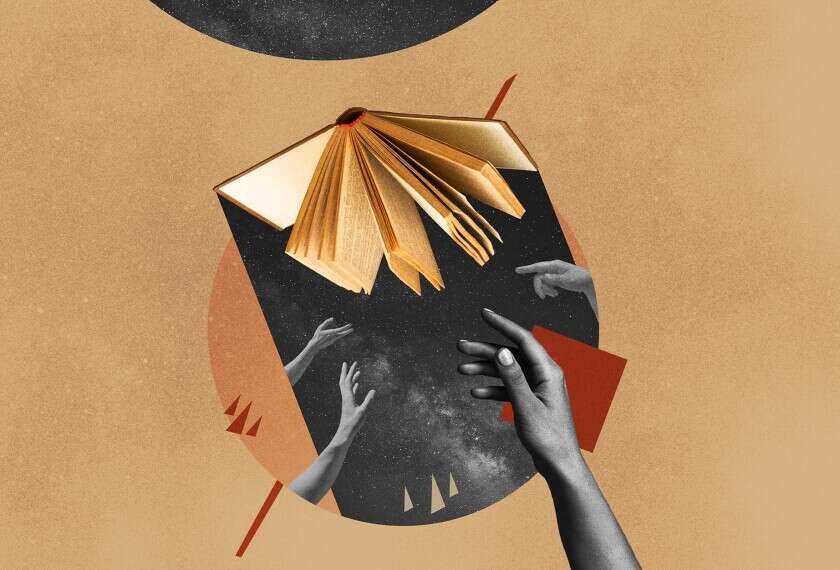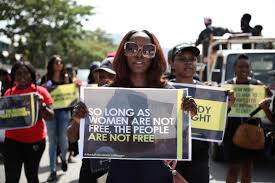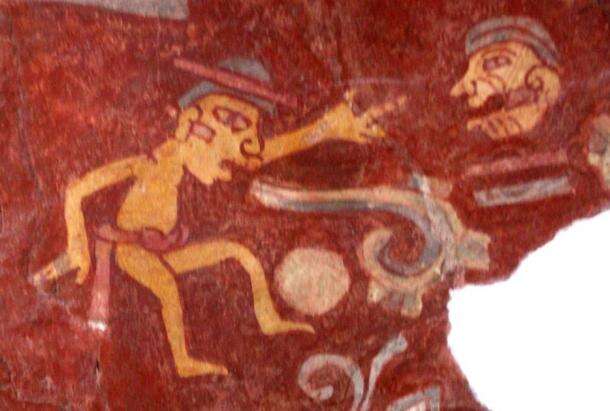Broken Windows, Warped Mirrors, and Jammed Glass Doors: On the Fascist Politics of Book Banning

In Rudine Sims Bishop’s influential essay Mirrors, Windows, and Sliding Glass Doors she addresses the importance of representation in readings; “When children cannot find themselves reflected in the books they read…they learn a powerful lesson about how they are devalued in the society of which they are a part” (1). Over the past several years there has been an increase in book banning and the restriction of titles in multiple school districts across the United States (Pen America). Now, with a recent leaked memo from the Waterloo Catholic District School Board in Ontario, Canada, it is clear that book banning is not an isolated event happening in the U.S. but is a growing phenomenon. Book banning looks to limit diverse representation which is crucial to minorities and the general population alike when it comes to understanding oneself and one another. History has shown that most fascist groups start with controlling narratives and representation–small acts of control that escalate into larger social dysfunctions. In recent years in the U.S. we have seen books being pulled from shelves and libraries turned into detention centers for students (Heubeck). Through an examination of current politics, fascist trends, and the importance of diversity in children’s literature, I argue that book banning reflects current political beliefs, and that when book banning becomes present it is a sure sign of fascism becoming present. This paper will first explore the politics of book banning, before moving on to look at the importance of diverse representation in children’s literature. Lastly, there will be a comparative study of Texas and Florida in the United States of America, and what is taking place in the Waterloo Catholic District School Board in Ontario, Canada.
Politics and Fascism
As Henry Giroux argues in his book Pedagogy of Resistance, “education has always been the substance of politics, but it is rarely understood as a site of struggle over agency, identities, values, and the future itself” (198). However, when we look to the current trend book banning and restriction, as Giroux argues, it becomes clear that education is a political playground for various groups to influence personal identity and agency. Indeed, as Jason Stanley argues in his book How Fascism Works: The Politics of Us and Them, “fascist politics seeks to undermine public discourse by attacking and devaluing education, expertise, and language” (36). When it comes to book banning, Richard Price, a censorship expert, lists three contexts that, when combined, highlight the need for control that is expressed in current instances of book banning. “These are: (1) the panic over the (mythical) teaching of Critical Race Theory in schools, which started in 2019; (2) the COVID- 19 pandemic, online school, vaccines, and mask requirements causing conflict and erosion in trust of school districts and government officials, and (3) the return to in-person schooling with lingering fears of safety and unresolved tensions.” (Pickering 41).
Giroux goes on to say that “the signposts for a cultural formation of ignorance are evident in the long-standing attack on public schooling, teachers, and unions, with ‘education’ being reduced to the market imperatives of neoliberal capital” (52). This is seen in Houston, where Superintendent Mike Miles authorized the repurposing of former school libraries into “team centers” (Heubeck) where students who misbehave are sent to watch lessons virtually. Such policies hijack education and turn it into grounds where politicizing motives can act. The political dimensions of these policies are evident in the fact that the 28 schools where this has happened are mostly serving student populations that are either majority-Black, majority-Hispanic/Latino, or economically at a disadvantage (Heubeck).
Both Canada and the United States have governments structured such that, although the majority do not support right-wing parties, they still hold heightened political influence. Gerrymandering of districts in many US states means that not all votes have equal weight in determining which party will be in power. This results in policies being implemented which are not supported by the majority of voters. Similarly, in Canada, our “First Past the Post” system, combined with the current views of the three main parties, means that the left-wing vote is frequently split between the Liberals and the NDP, paving the way for the Conservative party to gain power–even a majority government, which makes it difficult for the opposition parties to block legislation–despite having a minority of votes. In such a context, where a government holds a disproportionate degree of power compared to their public support, fascism begins to emerge. “Despite the lack of widespread public support, politicians are now often involved in trying to remove books from library shelves” (Pickering 44). Pickering further points out that “the huge rise in book banning in the past few years coincides with political divides over the Trump presidency, the growth of the Black Lives Matter movement, and increased support for LGBTQ+ communities” (41).
As the world becomes more divided, education becomes a ground for struggle and contestation. Minorities, largely disadvantaged, become talking points based on how funding impacts them, how detention centers and libraries are created and removed, and how representation is doctored to harm. As Jason Stanley puts it, “intelligent debate is impossible without an education with access to different perspectives, a respect for expertise when one’s own knowledge gives out, and a rich enough language to precisely describe reality” (Stanley 36). By taking away representation of different perspectives, and policing those who are different than the white, cisgendered population, fascism is present and able to control intellectual debate, as well as the wellbeing of our future.
It is well known that the United States is a political superpower on this planet, especially in the global west. The political climate that is present in the United States is leaking into Canada, and the mentality that the state ought to keep “controversial” topics out of schools is spreading. In preparation for a debate on a surgery ban for transgender youth, “Conservative leader Pierre Poilievre says schools should stick to teaching the basics and leave conversations about LGBTQ issues to parents” (Cullen). These mindsets percolate into the general public, especially as the Canadian population becomes frustrated with the Liberal government’s leadership across the last several years.
“Windows, Mirrors, and Sliding Glass Doors”
With books being restricted in a growing number of locations, it is important to understand the value of diverse books and the impact they have on children. In her paper Windows, Mirrors, and Sliding Glass Doors, Rudine Sims Bishop suggests that “a collection of books should include “mirrors, windows, and sliding glass doors”—enabling children to view characters who reflect their own identities, who open windows to others who are different, and who provide doors to new experiences and realities” (Cahill 270). Although Bishop uses these metaphors specifically with regard to race, they can be applied to any identity and experience. In an article building off Bishop’s title, Maria Cahill et. al. further discuss the need for diversity in books: “The representation of the characters in the books selected affects the extent to which children are able to view themselves, their friends, and their families. In turn, this perspective shapes the child participants’ identities” (Cahill 270). Having diverse representation not only helps children understand new worlds and other people better, but also helps them understand themselves through the “mirrors” that books provide. For young, racialized communities or minorities such as LGBTQ+ youth, having books with representation of themselves can be lifesaving. For those who do not fall within minorities, books provide windows into worlds they may not be otherwise exposed to, providing an opportunity for learning and empathy-building (Cahill 271). “Children as young as 3 years old exhibit racial biases. These biases and resultant formation of stereotypes may be reduced or eliminated by exposure to counter stereotypical images, such as illustrations in picture books and social justice–oriented teaching with diverse books” (Cahill 271). In other words, exposure to books about people who are different from themselves enables children to build empathy and understanding – both qualities essential for understanding others in a global society.
In March 2023, the American Library Association (ALA) announced that 2022 was a record year for book bans and challenges, and that 2023 was following this trend (Pickering 41). According to the ALA, the vast majority of titles being banned or challenged in 2022 were those about or by LGBTQ+ community and people of colour (Pickering 43). In 2021 and 2022 combined, the 1,648 book titles that were banned fell into these categories; “41% address LGBTQ+ themes or have prominent characters who are LGBTQ+ (with 9% transgender stories); 40% contain protagonists or prominent secondary characters of color; 21% directly address racism and race; 22% contain sexual content of different kinds (including informational books about puberty and relationships); 10% are related to rights and activism; 9% are biography or memoir; and 4% reflect US religious minorities, such as Muslim or Jewish traditions” (Pickering 43). The metaphorical windows and mirrors that books create for students of diversity and otherwise (Cahill 272) are being restricted and destroyed. Despite the value of books – and especially diverse books – the written world as we know it is shrinking in ways that reflect current political climates, the state of fascism, and right-wing agendas.
The Written World is Shrinking: Houston and Florida
Florida and Texas are the two leading states when it comes to book banning. “Florida is a leader in regulating school libraries. Passed in 2022, its statute HB1467 requires a “media specialist” to approve any books in a school or its library before they can be shelved; they are now reviewing entire school collections of books”. (Pickering 44). In Duval County, Florida, two children’s books on Hank Aaron and Roberto Clemente – both baseball legends – were temporarily removed due to the open discussions of racism that each of the men faced (Pickering 45). In another county in Florida, Escambia County, there was a recent vote that decided to keep four books labeled “inappropriate” by a high school teacher but limited them to “age-appropriate readers” (Pickering 44). This type of ban can be found across the state, and Florida claims they are merely “vetting” material for appropriate content. However, the ALA is clear that restrictions of this kind are book bans and violate student’s rights (Pickering 44).
In Texas, book bannings have increased significantly since they first started being reported on in rural Hood County two years ago (Schwartz). There was also an incident early on where the U.S. Department of Education launched an investigation into the Granbury Independent School District after the “superintendent was secretly ordering librarians to remove library books with LGBTQ+ themes” (Schwartz).
It is now clear that banning or restricting books is only the first step in the control of literature and representation. Houston Independent School District is now removing library staff positions in many of its schools and turning libraries into detention centers for poorly behaved students (Heubeck). The problem here is not just drastically decreased reading opportunities in schools where reading performance is below state average (Heubeck), but also that reading opportunities which may expose students to new worlds and possibilities are being eliminated in schools where there are more marginalized students and minorities. This is not only taking “mirror” representation away from minority students who need to see themselves represented, but is also reducing the number of “windows” that books provide to students to expose them to minorities they themselves do not belong to (Pickering 44). The lack of exposure, particularly in early years, makes it harder for children to learn empathy and inclusion of people who are not exactly like themselves (Cahill 271).
Broken Mirrors and Windows: Restricting Books in Ontario
Pickering writes that, “in addition to outright banning and defunding, there are other ways in which books are diverted from getting into people’s hands. Book challenges and bans have a chilling effect on librarians, libraries, and school districts” (45). This is not only limited to the United States: similar to what Escambia County did in restricting books to “age-appropriate readers” (Pickering 44), and what the Granbury Independent School District did in Texas (Schwartz), a leaked memo from the Waterloo Catholic District School Board (WCDSB) in Ontario, Canada shows that books are being restricted for LGBTQ+ themes to a “professional category” (Betts). This means that only students who have requested to read them and have talked to a teacher may access them in grades one through six (Betts). While this is not yet at the level of shutting down libraries, people should be concerned with the limiting of representation – the breaking of mirrors, windows, and doors – that is presently taking place within the WCDSB.
The four titles being consider for restriction are Princess Pru and the Ogre on the Hill by Maureen Fergus and Danesh Mohiuddin, The Mystery of the Painted Fan by Linda Trinh and Clayton Mguyen, Salma Writes a Book by Danny Ramadan and Anna Bron, and Jude Saves the World by Ronnie Riley. Each of these books contain LGBTQ+ themes ranging from a princess having two dads, to topics of building a safe community. The books are all part of The Forest of Reading, Canada’s largest recreational reading program, that schools must opt-in to participate.
Lema Salaymeh, the senior manager of communications for WCDSB, confirmed that the four books were put into the Professional (PRO) section of elementary libraries which, as mentioned before, can only be accessed by students after a teacher has provided the “catholic context” (Betts) for the book. It is unclear what the Catholic context is for books containing LGBTQ+ themes. The reasoning for putting the four restricted books in the PRO section for grades one through six is that the Family Life curriculum only begins to talk about same-sex relationships in grade 7 (Family Life Education).
Children do not spontaneously start being aware of LGBTQ+ or other minority issues in grade 7, when the curriculum starts to teach it at WCDSB. By limiting access to books, the mirrors, windows, and doors that can be provided by diverse reading is limited, harming the empathy of children, their understandings of self and others, and opportunities to enter new worlds.
Conclusion
On the topic of education and politics, Giroux writes in Pedagogy of Resistance that “these issues can no longer be viewed as individual or isolated problems but as manifestations or a broader failure of politics, if not the public imagination” (Giroux 19). There is a connection between educational choices and politics that permeates the current North American school systems, and that is harming libraries, teachers, and students, that stems from a need to control narratives of diversity and hope. It is evident that the right-wing in the US and Canada fear the political implications of critical race theory and LGBTQ+ topics of gender and sexuality, through their seemingly urgent desire to control books on the subject matter. This is a fascist attempt to shape narratives of who is considered acceptable and who is not; while it started in the United States of America, it is now clear that control over books is spreading to Canada. The windows, mirrors, and sliding glass doors that books provide for young readers are being broken and dismantled by fascist agendas. If we flip the script, we see that book banning is a warning call to an emerging fascism, present in the surrounding political environment. This disproportionally impacts racial minorities and the LGBTQ+ community, as well as those who are economically disadvantaged. As book banning turns to attacks on libraries, there is a risk that representation in literature will no longer have to be contested at all, because there will be no books easily accessible to children.
Bainbridge, Emma. “A Catholic School Board in Ontario Is Accused of Shadow Banning LGBTQ2S+ Books.” Xtra Magazine, 15 Nov. 2023, xtramagazine.com/power/politics/a-catholic-school-board-in-ontario-is-accused-of-shadow-banning-lgbtq2s-books-259304.
Beattie, Steven W. “Access to Books with LGBTQ Themes Restricted by Ontario’s Waterloo Catholic District School Board.” Toronto Star, 10 Nov. 2023, www.thestar.com/entertainment/books/access-to-books-with-lgbtq-themes-restricted-by-ontario-s-waterloo-catholic-district-school-board/article_241b8c55-cc83-5c0b-aec0-6b9d5118cfc5.html.
Betts, Matt. “Advocacy Group Furious over Catholic Board Restricting 2SLGBTQIA+ Books.” CambridgeToday.Ca, 2023, www.cambridgetoday.ca/local-news/advocacy-group-furious-over-catholic-board-restricting-2slgbtqia-books-7840272.
Bishop, Rudine Sims. 1990.“Mirrors, Windows, and Sliding Glass Doors.” https://scenicregional.org/wp-content/uploads/2017/08/Mirrors-Windows-and-Sliding-Glass-Doors.pdf
“Book Banning at the WCDSB.” Reddit, www.reddit.com/r/waterloo/comments/17libk0/book_banning_at_the_wcdsb/. Accessed 18 Nov. 2023.
Cahill, Maria, et al. “Storytime programs as mirrors, windows, and sliding glass doors? addressing children’s needs through diverse book selection.” The Library Quarterly, vol. 91, no. 3, 2021, pp. 269–284, https://doi.org/10.1086/714317.
“Canadian Publishers Express Concern over Alleged Restriction of LGBTQIA2S+ Books in Waterloo Catholic District Schools – Association of Canadian Publishers.” Association of Canadian Publishers – The Voice of Canadian Independent Book Publishers., 10 Nov. 2023, publishers.ca/wcdsb-book-restriction-statement/.
Cullen, Catherine. “Poilievre Says Schools Should Leave LGBTQ Issues to Parents | CBC News.” CBCnews, CBC/Radio Canada, 28 Aug. 2023, www.cbc.ca/news/politics/poilievre-lgbtq-pronouns-schools-1.6950029.
Deogun, Inderjit. “Apparent Restrictions Imposed on 2SLGBTQ+ Books at Ontario’s Waterloo Catholic District School Board – Quill and Quire.” Quill and Quire – Canada’s Magazine of Book News and Reviews, 15 Nov. 2023, quillandquire.com/omni/apparent-restrictions-imposed-on-2slgbtq-books-at-ontarios-waterloo-catholic-district-school-board/.
“Family Life Education – Institute for Catholic Education.” Ontario Catholic Elementary Curriculum Policy Document, Grades 1-8, www.iceont.ca/wp-content/uploads/2015/08/Family-Life-Ed-2012.pdf. Accessed 18 Nov. 2023.
Giroux, Henry A. Pedagogy of Resistance: Against Manufactured Ignorance. Bloomsbury Academic, 2022.
Heubeck, Elizabeth. “One of the Country’s Largest Districts Is Turning School Libraries into Discipline Rooms.” Education Week, Education Week, 4 Aug. 2023, www.edweek.org/leadership/one-of-the-countrys-largest-districts-is-turning-school-libraries-into-discipline/2023/08.
PEN America. “New Report: Book Bans Spike by 33% over Last School Year.” PEN America, 21 Sept. 2023, pen.org/press-release/new-report-book-bans-spike-by-33-over-last-school-year/#:~:text=Since%20PEN%20America%20started%20tracking,authors%2C%20illustrators%2C%20and%20translators.
Pickering, Grace. ““Harmful to Minors” : How book bans hurt adolescent development.” The Serials Librarian, vol. 84, no. 1–4, 2023, pp. 41–54, https://doi.org/10.1080/0361526x.2023.2245843.
Press, Annick. “Annick Press Statement on Shadow-Banning.” Annick Press, 9 Nov. 2023, www.annickpress.com/News/Annick-Press-Statement-on-Shadow-Banning.
Prose, Francine. “Why Is Houston Shutting down Libraries at Some of Its Poorest Public Schools? | Francine Prose.” The Guardian, Guardian News and Media, 15 Aug. 2023, www.theguardian.com/commentisfree/2023/aug/15/houston-shutting-libraries-poorest-public-schools.
Schwartz, Jeremy. “Book Bans in Texas Spread as New State Law Takes Effect.” The Texas Tribune, The Texas Tribune, 11 Oct. 2023, www.texastribune.org/2023/10/11/texas-library-book-bans/.
Stanley, Jason. How Fascism Works: The Politics of Us and Them. Random House, 2020.
The Writers’ Union of Canada. “Memo Suggests Shadow-Banning of LGBTQIA2S+ Books in Some Ontario Schools.” Memo Suggests Shadow-Banning of LGBTQIA2S+ Books in Some Ontario Schools | The Writers’ Union of Canada, 2023, www.writersunion.ca/memo-suggests-shadowbanning-of-lgbtqia2s-books-in-some-ontario-schools.
Read more at By Zoe Beilby.
Articles, Education, Social JusticeRelated News
News Listing

By Maya Phillips ➚
Failure to Reeducate: Perpetuations of Cultural Fascism in Post-War Germany
Articles, Cultural Pedagogy, Public Pedagogy
February 9, 2026

By Rosemary Kasiobi Nwadike ➚
Feminist Miseducation in the Afro-West: Examining (In)Formal Gender Indoctrinations
Articles, Education, Resistance, Social Justice
July 11, 2025

